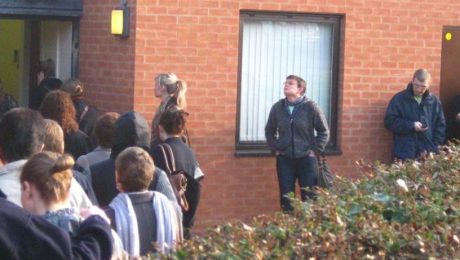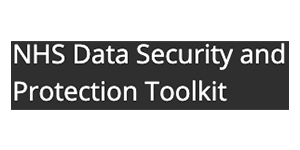Tele-First study reported in BMJ
With the publication in this week’s BMJ of the Tele-First study into the telephone first model of general practice, you would expect me to read carefully and respond. So here are the headlines:
- 65% of patients report being phoned by a GP in less than one hour.
- 56% of patients find it more convenient vs 22% less convenient
- Large improvement in length of time to be seen, 20% move in GPPES survey.
At a time when we are told repeatedly that patients are having to wait ever longer to see a GP, often measured in weeks, these are quite astonishing figures, all quoted direct from the report. But, dear reader, these are not the headlines you have seen in Pulse or the BMJ Editorial are they? Studies, and the interpretation of studies, are political. We have an interest, and so does everyone else.
Therefore the first thing I want you to do is read the full text so you can make your own mind up independent of headline writers. It is much more detailed than the print version, framed by an angry looking GP model and a scared looking patient model, giving more space to a commentary piece than the actual study.
There is much to absorb but for brevity I’ll comment on the summary section.
What is already known on this topic
- GPs are struggling with the current demands on general practice and looking for effective ways to manage patient demand
- Claims have been made, reproduced in NHS England literature, that a telephone first approach, in which all patients wanting to see a GP are asked to speak to a GP on the phone first, results in major cost savings for primary care and reductions in secondary care costs
We do not make those claims, they were made on the home page of PPC Doctor First, a 20% drop in A&E and £30,000 saving per GP per annum. I’m grateful to the authors for proving these false. *
What this study adds
- In general practice, many problems can be dealt with by a GP on the phone
- The new telephone first approach resulted in more phone calls, fewer face to face consultations, and, on average, more time spent consulting
- There was wide variation between individual practices, including large increases and large decreases in workload after adoption of the telephone first approach
- There was no evidence that the telephone first approach would reduce costs of secondary care
In a way it is disappointing to see no secondary care effect, but not unexpected and unless the evidence changes, that is what we accept.
But what has really got GPs aerated is this finding of “more time spent consulting”. This was derived from data sent by us to the study, which we have not used to make a calculation on workload for several reasons: much of it is missing (and as the authors state, had to be imputed), it shows wide variation, and it cannot account for total workload. Let’s consider:
Workload = demand/efficiency + non-clinical work + waste
We do not have a reliable way to measure the total, and given that the study used only one of our three datasets, I don’t see how they can make this assessment. Just one example: many practices have told us of the drop in home visits, each one saving the time for many surgery consultations. This is not measured. It may be a good thing to have more recorded time consulting, if less time is wasted. Not only does this finding seem to me unsafe, it also brings us back to the question of purpose, for the study and indeed for the NHS.
If the purpose is to minimise GP workload, we can do so very simply: design the working day so you see 4 or 5 patients in the morning, take a good lunch and a nap, then spend a little time in personal reflection and development before heading home., purpose achieved.
I’ve worked with a lot of very hard working GPs and they would not be satisfied with that purpose. No, the purpose of general practice and therefore the purpose of change must be to improve patient care.
There’s a missing term in the workload formula, and that is “unmet need”. Behind those words lies untold suffering and frustration of patients, heard perhaps by a receptionist (one wrote last week, “I dread having to tell the patients there’s nothing left”) while others do not even get through on the phone. This is the dirty secret of general practice, and over many years we’ve measured it in practices we’ve helped, variable around an average of 14%.
One in seven patients is told to go away. Although we offered this data to the study team, they didn’t want it and took no account of it.
Their figures cannot distinguish between the workload of one GP helping 30 patients in a day, who had all waited two weeks, and another helping 40 patients in a day, on the same day they called. It could be life changing for those 10 patients, indeed all 40 of them for not having to suffer two weeks of disease, pain, or anxiety.
Both GPs may have equal skill and compassion, but the difference comes from efficiency.
By framing the question on workload rather than efficiency, the study misses a huge opportunity. It offers no help on how to become more efficient, and while it found wide variation in performance, the data were munged into averages rather than investigating in detail why the best ones worked better.
I’ll tell you a secret: we’re in this for the patients. To help the patients we have to help the GPs be more efficient. There is never a final answer to the method, there is only “the best we know for now, while we look for the still better way”.
We’ve helped around a million patients so far, with another 50,000 to be added in the next month. and as telephone triage (done well) is more efficient than pre-booked face to face, digital triage is already proving to be the next step. Sometimes we fail, but we press on.
Every day over 100,000 patients are told by practice receptionists “Nothing left, call another day”. Not on any basis of clinical need, just because the GPs have no slots.
It’s my personal mission to eliminate that phrase. What’s yours?
Regards,
Harry Longman
* The 20% A&E effect came from my 2011 study, based on pioneer practices with up to 10 years running the model, and promising at the time. The figure was copied by Dr First but never attributed. We could not show that the effect was reproducible, and therefore stopped making any specific claim about A&E 3 years ago. £30,000 saving? We make no such claims, although if GPs tell us about savings we are happy to report them. Why did NHS England swallow this?
@harrylongman
- Published in News






Revealed: askmyGP shares NASA Mars mission technology
“We’ll get the information a lot sooner and for a lot less money by just sending a person.” I was dumbfounded. Dr Ellen Stofan, outgoing Chief Scientist of NASA, was talking to Jim Al-Khalili on the Life Scientific about no less a task than finding life on Mars.
It’s a fascinating interview from the start, or jump to the quote at 19 minutes in. So that’s why they want to send a person, not for the ultimate ego trip, but the simple purpose of finding life. Jim pushes her on the reason, doubtless at a cost which is telephone numbers cubed, and it’s simple: humans are creative, flexible and mobile.
All they have to do is break open rocks and look for fossilised microbes. With NASA’s vast resources and access to the world’s best brains, their secret weapon isn’t AI and robotics, but human intelligence.
I’m an engineer and a technophile. I read Wired online and I have three bicycles, one of them all carbon. But I’m ever so wary of the claims made for AI chatbots revolutionising healthcare any minute now.
At Best Practice show last week half a dozen companies were offering some clever algorithm to make your patients go away. They are so seductive, even plausible. But when I ask, “How many patients have actually used them?” I get stonewalled.
Substantial wedges of venture capital say “It must work”. Rather different from asking, “What works?”
What humans are good at:
What computers are good at:
Our philosophy with askmyGP is very clear: we get the computers to do the boring easy bits they do so well, so the humans can get on with the real hard work of looking after patients.
We’re proud to call it HI and we’re on the same track as NASA.
Harry Longman
PS Did I get that the wrong way round? Doh! Must get a new proof reader.